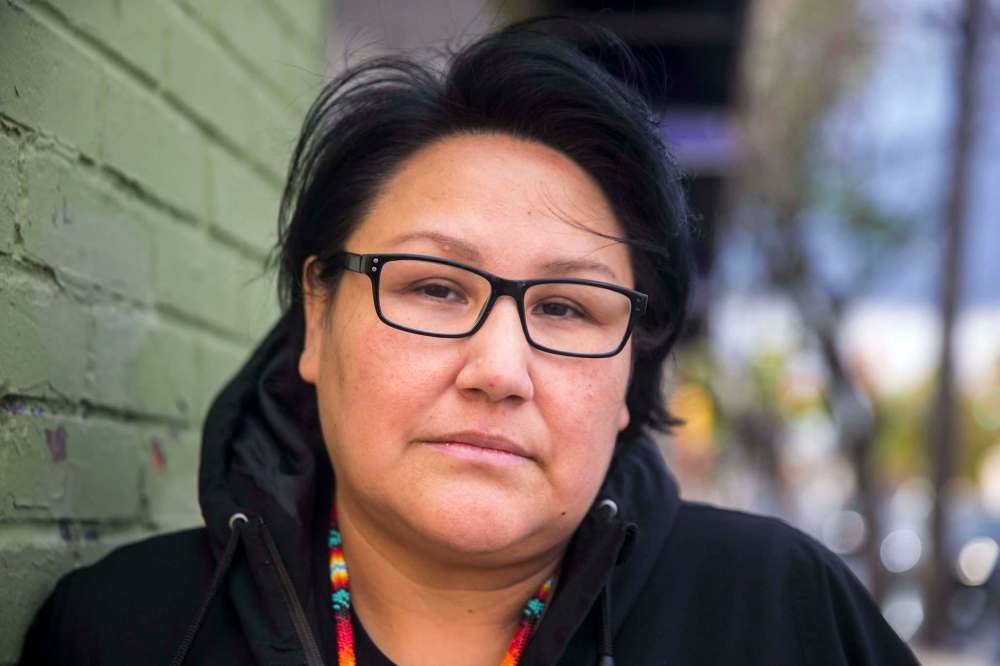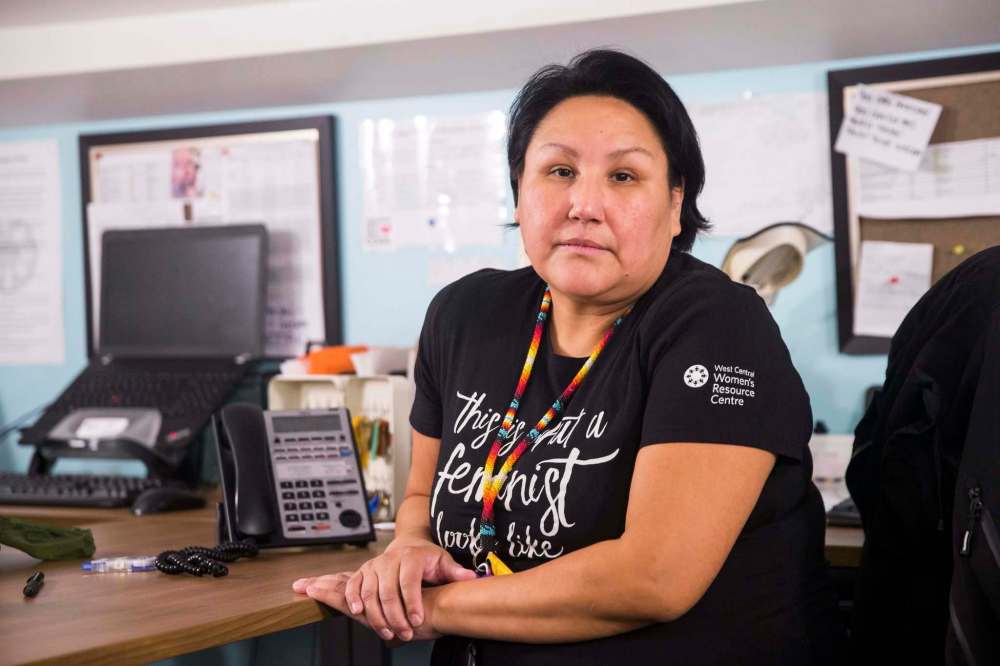Advocates scramble as pandemic eviction moratorium ends
Read this article for free:
or
Already have an account? Log in here »
To continue reading, please subscribe:
Monthly Digital Subscription
$1 per week for 24 weeks*
- Enjoy unlimited reading on winnipegfreepress.com
- Read the E-Edition, our digital replica newspaper
- Access News Break, our award-winning app
- Play interactive puzzles
*Billed as $4 plus GST every four weeks. Offer only available to new and qualified returning subscribers. Cancel any time.
Read unlimited articles for free today:
or
Already have an account? Log in here »
Hey there, time traveller!
This article was published 30/09/2020 (1616 days ago), so information in it may no longer be current.
At work, Tammy Leask has been calling and emailing provincial income-assistance employees, landlords and tenant advocates, doing whatever she can to find or keep safe housing for the 36 women in her support program.
The full-time Housing First worker at West Central Women’s Resource Centre in Winnipeg has been busy in the lead up to Oct. 1, when COVID-19 pandemic-related protections for renters will no longer be in effect.
For the past six months, Manitoba landlords were not allowed to collect rent increases or late fees, nor were they permitted to evict anyone for non-payment of rent.

Those emergency orders are ending, leaving Leask scrambling to help vulnerable women who are behind on rent and worry they’ll be evicted. She said she hears regularly from those who are facing homelessness if they can’t make rent, but are afraid of going to a shelter. One woman told Leask she hid in a bush to sleep at night because she had nowhere else to go.
“I think about that, and think about my struggle, too, because I feel for these women. I know exactly what can happen,” she said Wednesday.
After work, Leask has been trying to stretch her own household budget, and wonders how she’ll be able to afford the $300/month rent increase set to come into effect in November for her three-bedroom Manitoba Housing apartment. It’ll cut into her grocery budget, she said.
“I have two little ones at home that I still have to feed and clothe and buy school lunches for, but I need a roof over our heads. So I have to pay the rent and let some things go,” Leask said. “I have no choice.”
“I think about that, and think about my struggle, too, because I feel for these women. I know exactly what can happen.” – Tammy Leask
Dozens of community groups across Manitoba signed a letter addressed to Families Minister Heather Stefanson last week, asking the province to extend its moratorium on evictions and rent increases until a safety plan is in place for renters during the ongoing COVID-19 state of emergency. They called on the government to start a working group of advocates, landlords and government officials — something the province hasn’t agreed to.
Stefanson’s office did not respond to questions Wednesday from the Free Press, instead deferring to other government departments. Her office said the minister replied to housing advocates about affordable housing and shelter supports.
Dawn Sands, executive director of the North End Community Renewal Corporation, said the organization is anticipating a “huge push as soon as that moratorium is lifted,” but doesn’t yet know how many people could be facing eviction because of unpaid rent.

The Canadian Centre for Policy Alternatives has estimated the number of Manitobans who couldn’t pay all or some of their rent during the pandemic may be 5,000 to 7,000.
“The reason why we’re calling for a working group is because we understand that landlords have to be part of the solution. There have to be supports in place for tenants and for landlords. We know there are some landlords out there that are working with their tenants on repayment plans and doing that just by their own decision, but we would like to see a formal process put in place by this government until we can get to a place where it’s safe to lift all of the mortatoriums,” Sands said.
In a statement, a spokesperson for Manitoba’s Residential Tenancies Branch confirmed hearings will resume Thursday, including enforcement of orders related to non-payment of rent.
“There are still available spots for hearings in the first week, so the RTB is not currently seeing a significant demand. This appears to be consistent with Saskatchewan’s experience, as they began hearings in early August,” the statement said.
This decision to lift the eviction ban is one example of many policies that they’ve been implementing over the last couple years that we think are really going to leave a legacy of increased homelessness and poverty across the province.” – Kirsten Bernas, chairwoman of the Winnipeg-based Right to Housing Coalition
Kirsten Bernas, chairwoman of the Winnipeg-based Right to Housing Coalition — who also works with Leask — said she understands landlords are struggling, too, and that’s why the community groups are asking for landlords to be involved in a provincial plan.
“We’re super concerned about the overall direction that the provincial government is taking around housing for low-income people in Manitoba. This decision to lift the eviction ban is one example of many policies that they’ve been implementing over the last couple years that we think are really going to leave a legacy of increased homelessness and poverty across the province,” Bernas said.
katie.may@freepress.mb.ca
Twitter: @thatkatiemay

Katie May
Reporter
Katie May is a general-assignment reporter for the Free Press.
Our newsroom depends on a growing audience of readers to power our journalism. If you are not a paid reader, please consider becoming a subscriber.
Our newsroom depends on its audience of readers to power our journalism. Thank you for your support.






